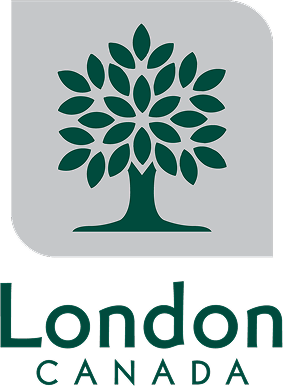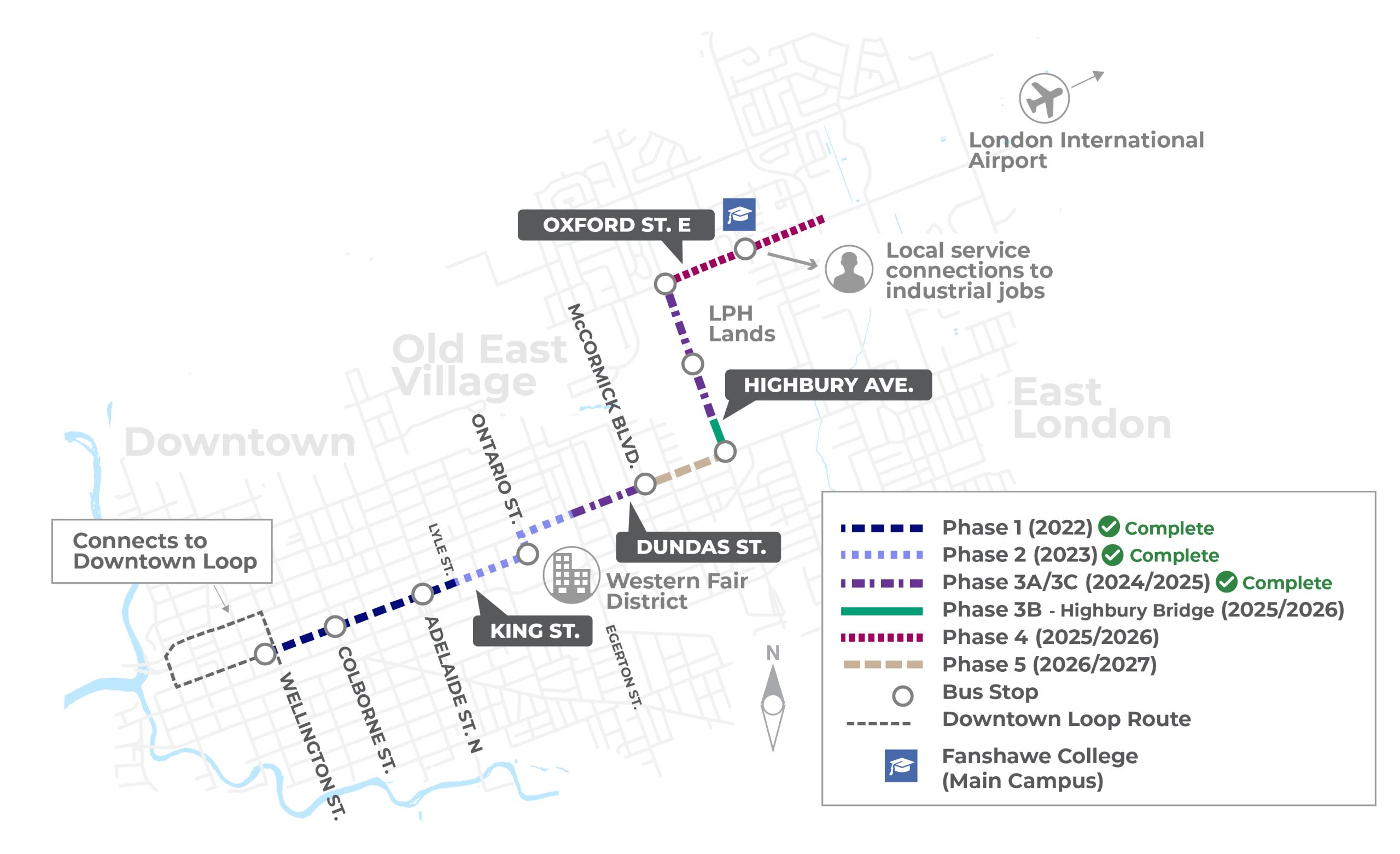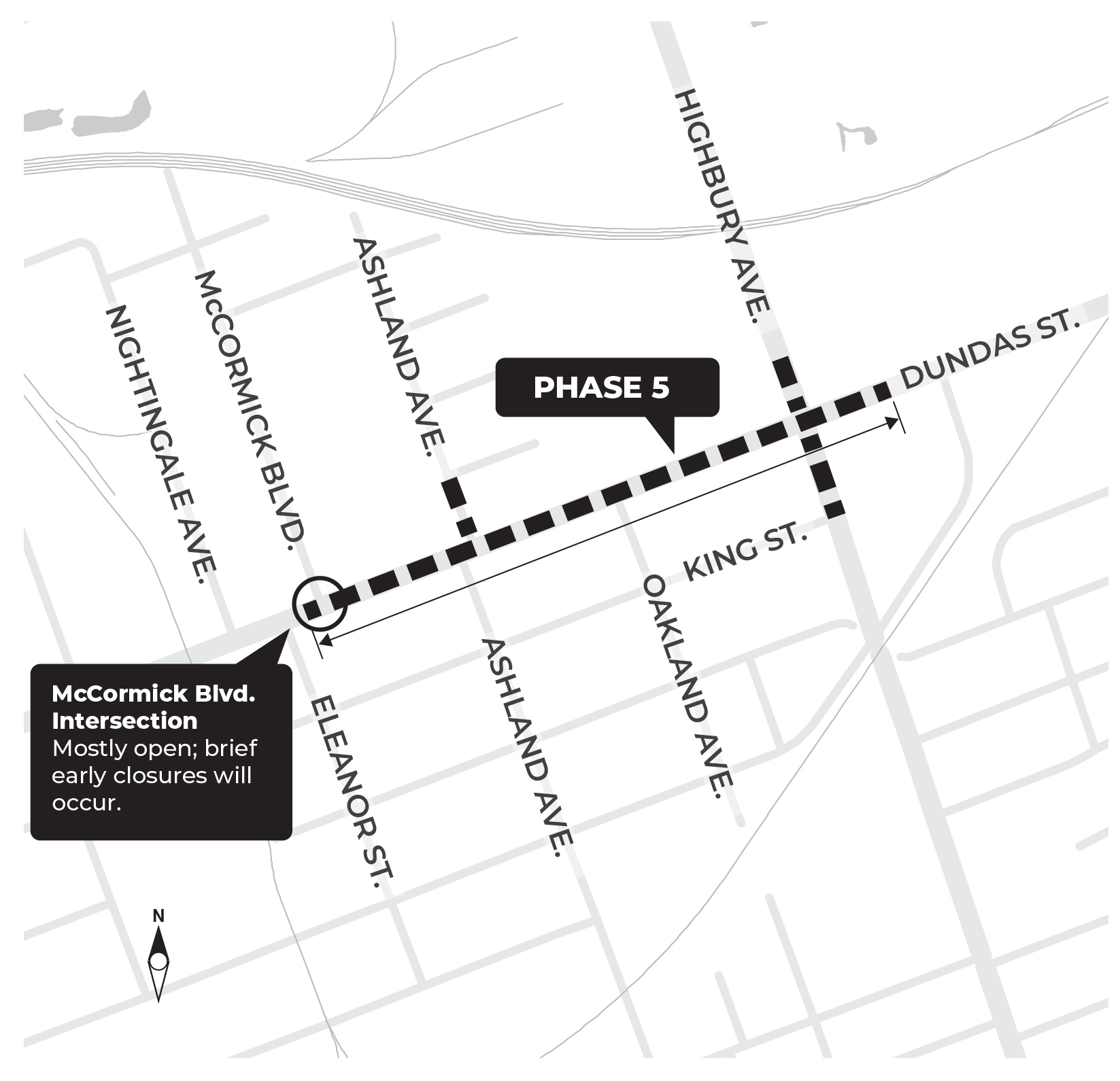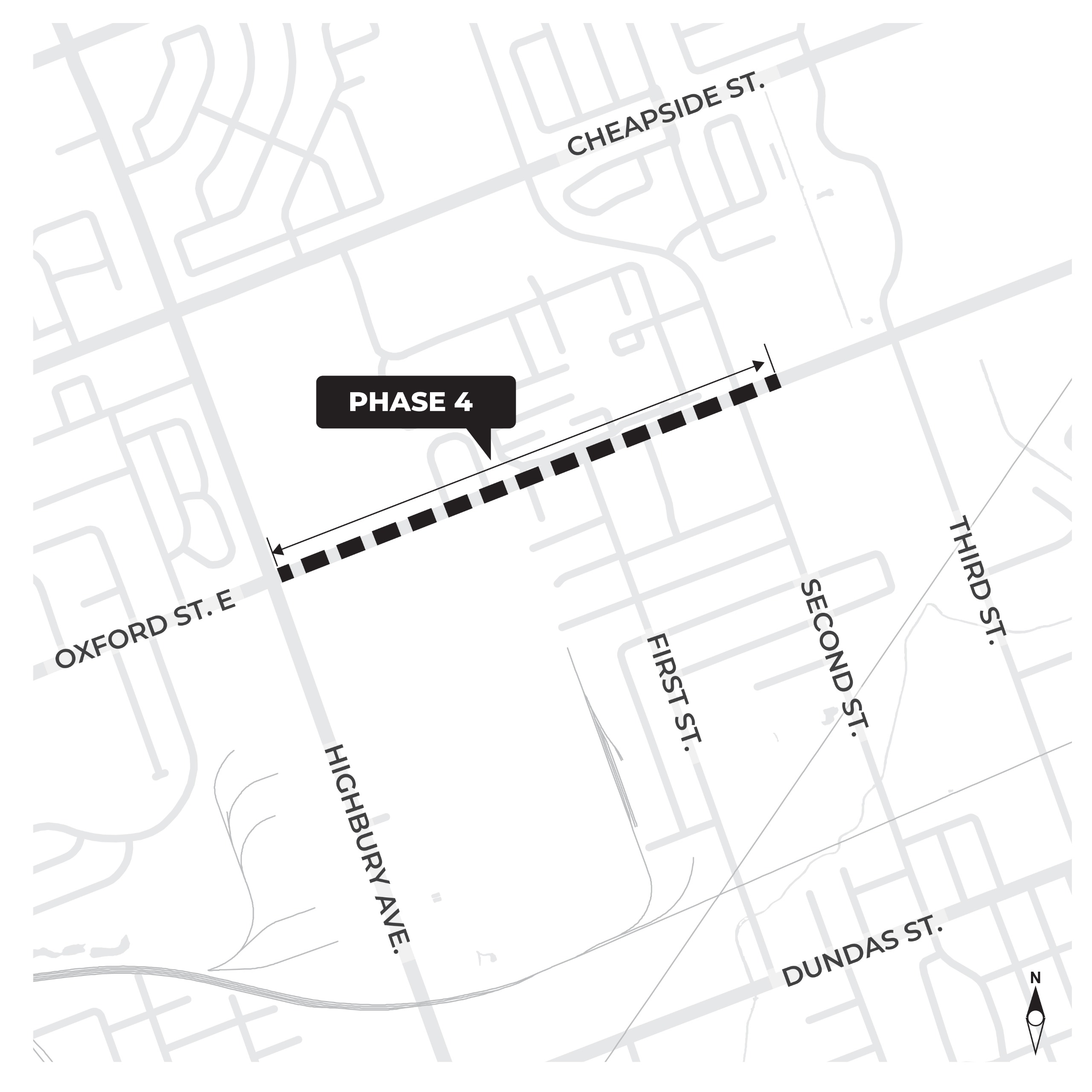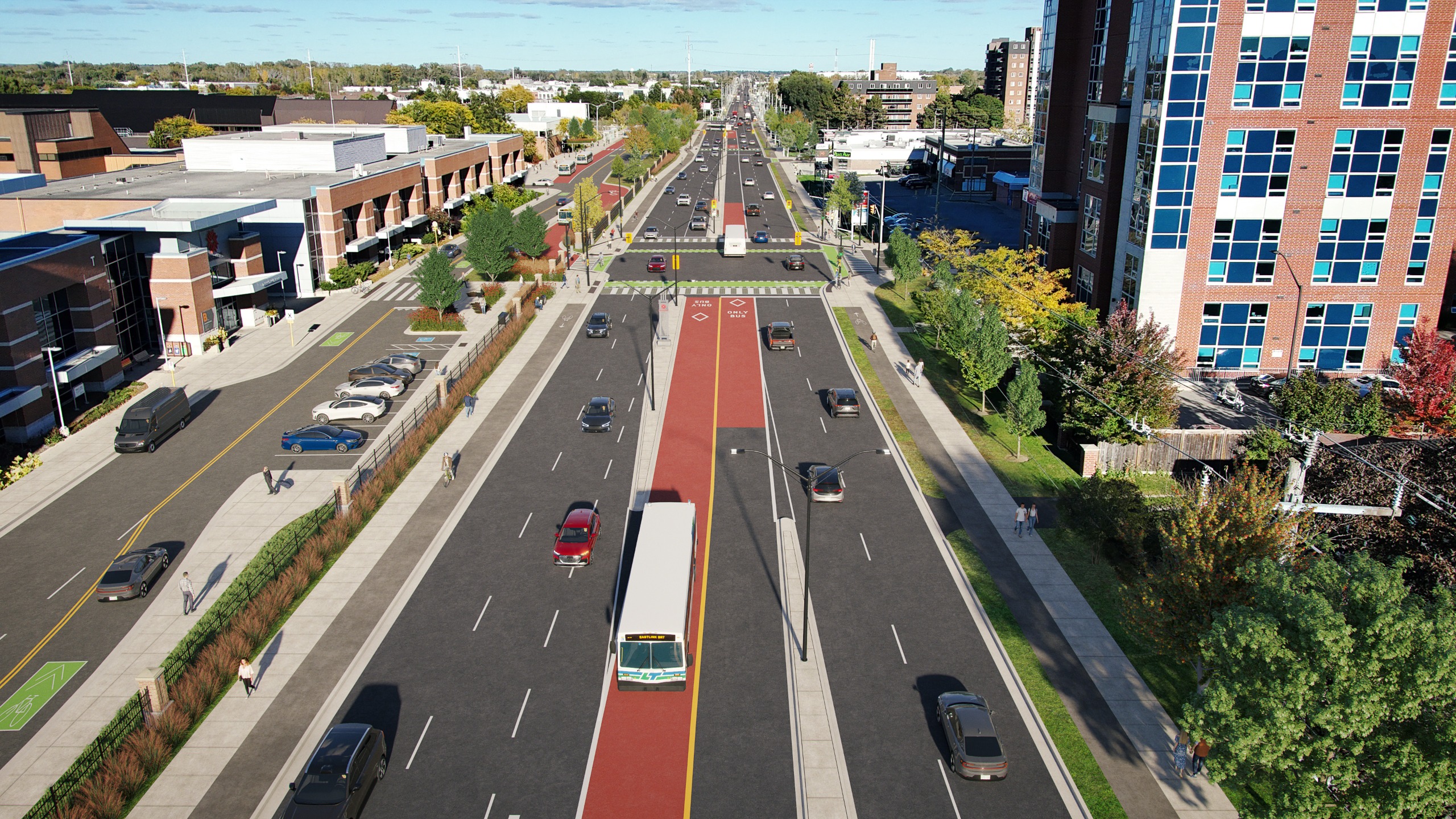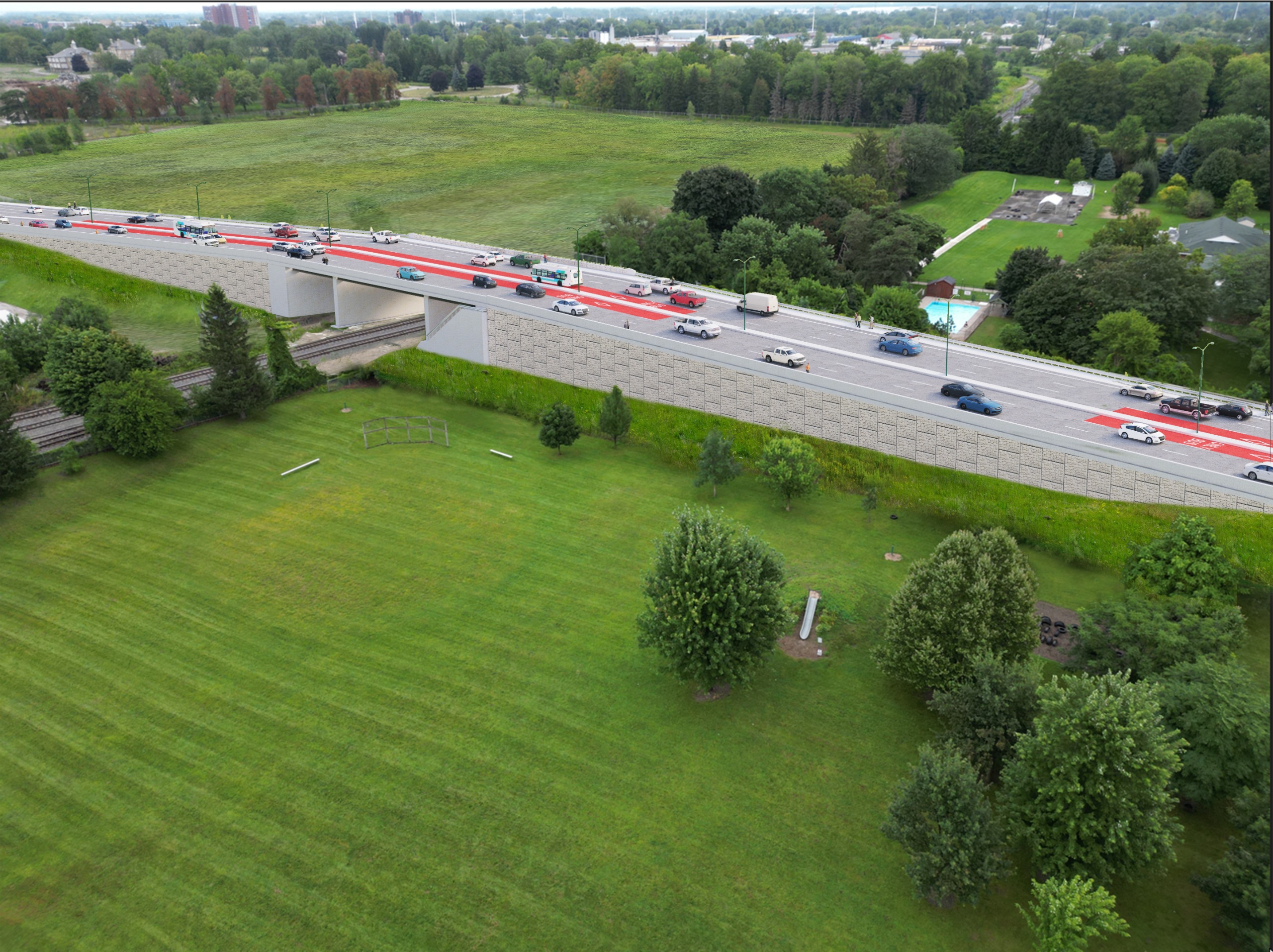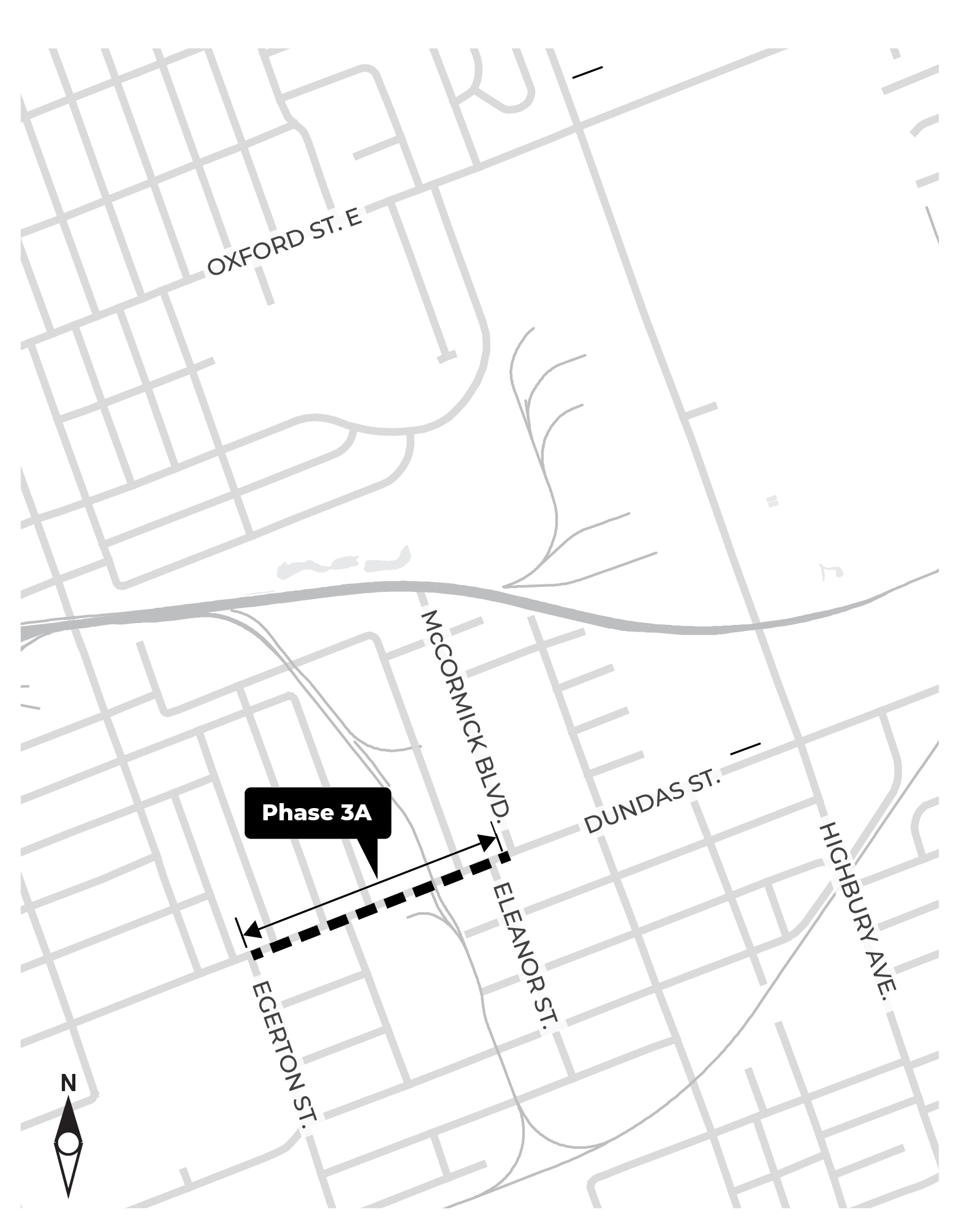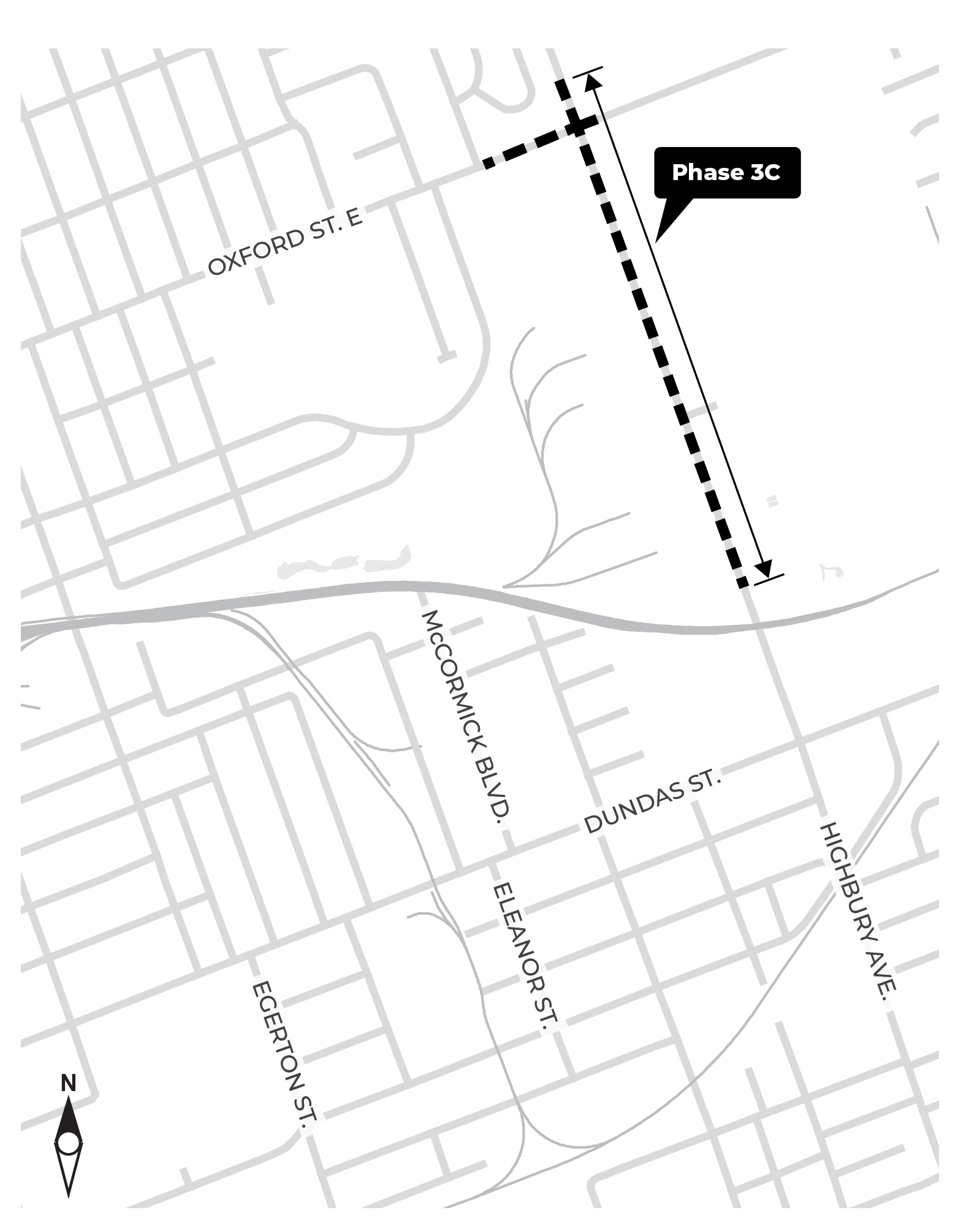Phase 4 – Oxford Street: Crews are completing roadwork, sidewalks and landscaping on the south side of Oxford Street this year. Work on the north side, between Highbury Avenue and Second Street, is scheduled to begin in January 2026. Lane restrictions and detours will be in place through September 2026.
Phase 3C – Oxford to Highbury: Most construction will wrap up in 2025, with final paving and bus lane painting planned for spring/summer 2026.
Phase 3B – Highbury Bridge: Construction on the Highbury Bridge will continue through winter and into 2026.
Phase 5 (2026–2027): Crews will begin mobilizing to the area as early as mid-March to prepare for construction. During construction, Dundas Street will be fully closed within the project limits, with access restricted to local traffic only for businesses, residences, and emergency services.
Construction phasing
